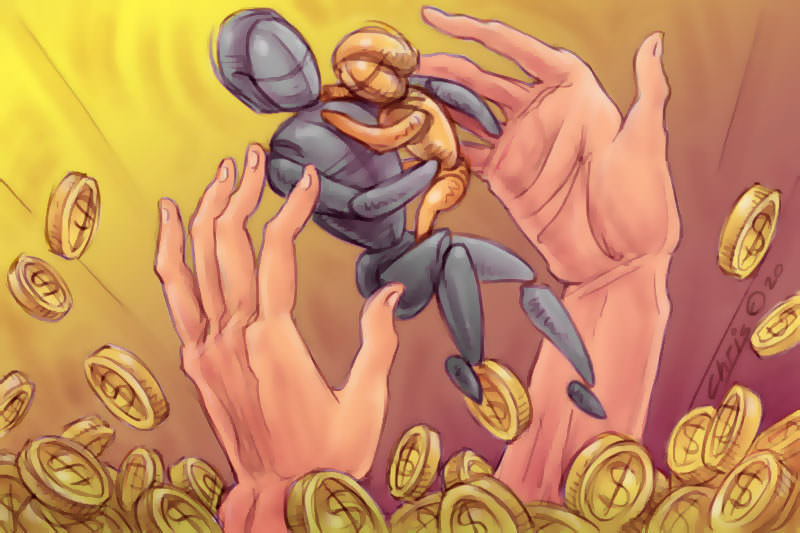Extract from Eureka Street
ARTS AND CULTURE
- Tim Robertson
- 21 July 2020
In The Craftsman, sociologist Richard Sennett offers a radical vision for living, a way of being and engaging with the world based on the values, ethos and commitments embodied in craftsmanship — an antidote, if you will, to a commercial and consumption-driven vision of the world. ‘[W]ho we are arises directly from what our bodies can do. Social consequences are built into the structures and the functioning of the human body, as in the working of the human hand’, he writes. Sennett argues that ‘the capacities our bodies have to shape physical things are the same capacities we draw on in social relations.’
 This
reimagining demands that many of the assumptions about our social life,
those often expressed as binary oppositions — between theory and
practice or maker and user for example — are done away with and replaced
with an alternative way of conducting life with skill. While this may
include the kind of commonly evoked craftsmanship of the pre-industrial
age and frankie-style craft, it should be thought of it a much broader sense, encompassing things as seemingly diverse as parenting and coding.
This
reimagining demands that many of the assumptions about our social life,
those often expressed as binary oppositions — between theory and
practice or maker and user for example — are done away with and replaced
with an alternative way of conducting life with skill. While this may
include the kind of commonly evoked craftsmanship of the pre-industrial
age and frankie-style craft, it should be thought of it a much broader sense, encompassing things as seemingly diverse as parenting and coding.
Craftsmanship is a way of seeing and understanding mediated through touch and feel and the body. While the finished product or the stated goal are important, the process — as an act of learning, making mistakes, experiencing both frustration and satisfaction — is equally (if not more) important.
One of the unintended consequences of the COVID-19 restrictions has been a return to craftsmanship for many people, whether it’s making sourdough, cooking more regularly, maintaining a garden or learning an instrument. The pandemic has forced everyone to change the way they live and, for many, this has meant they’ve had more time to pursue activities and interests that they may not have ordinarily prioritised.
There have been studies that purport to demonstrate the mental health benefits of incorporating craft practices into one’s daily life and these have long been central to occupational therapy. And who could forget the adult colouring book craze from a few years ago, which promised respite from the stresses and pressures of modernity, a way of unwinding, escaping and perhaps rediscovering — if only briefly — the carefreeness of childhood.
But this is craft and craftsmanship as coping mechanisms, as a way of dealing with the conditions that have so many people feeling alienated and isolated and suffering in the first place. The neoliberal organisation of our societies — the emphasis on the individual and competition and the Hayekian notion that there is a social good in individual wealth accumulation, for example — determines how we relate to our bodies, the form our relationships take and the way we engage with our communities.
COVID-19 has upended the received wisdom about progress and forced us to confront our vulnerability from a public health perspective, to face the reality that, despite the scientific advances of the last century or two, we are still just as susceptible to disease as our ancestors.
'What’s needed is a radical restructuring of capitalism, one that builds on the values of craftsmanship, a post-growth economy organised around human wellbeing, rather than one fuelled by the accumulation of capital.'
An equivalent reassessment of the economic system remains elusive, though; the images of people lining up out the front of Centrelink offices on the same day that the government was telling people to self-isolate elicited sympathy from some parts of the liberal media, but I can’t recall it being held up as a portrait of systemic failure.
The emergency measures taken in late March — the doubling of the Newstart allowance, the implementation of JobKeeper and, abroad, the unprecedented interventions of the Federal Reserve and the European Central Bank, for example — should be a reminder that when politicians say they can’t afford to do something, what they really mean is that they don’t have the political will.
What’s needed is a radical restructuring of capitalism, one that builds on the values of craftsmanship, a post-growth economy organised around human wellbeing, rather than one fuelled by the accumulation of capital.
That this is still a marginal idea in mainstream Australia is a reflection of just how far we are from living lives, building and fostering communities and engaging with the world around us in ways embodied in the spirit of craftsmanship.
 Tim Robertson is an independent journalist and writer. He tweets @timrobertson12
Tim Robertson is an independent journalist and writer. He tweets @timrobertson12
No comments:
Post a Comment